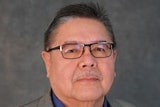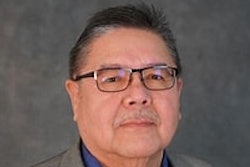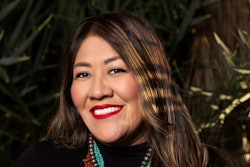Oct. 25–FAIRBANKS — The rules may be changing for Alaska Native firms that have reaped billions in revenue from government contracting.
The U.S. Small Business Administration is preparing to revise its program for steering government work to small, minority-owned firms. This program has allowed some once-struggling Native corporations to blossom into some of Alaska’s largest businesses.
On Wednesday, a parade of Native leaders said the program is going well and accomplishing just what Congress intended, and they urged the agency not to substantively change it.
SBA officials responded at a daylong hearing that they must change the rules to improve oversight and make sure that U.S. taxpayers are getting the best value for their money.
Due to the special perks they get from the program, Alaska Native corporations have won work across the globe, from training security guards in Iraq, maintaining scanning machines at ports and borders, and operating search-and-rescue boats in the South Pacific.
The Native companies are the envy of other U.S. minority groups spanning the country. One of the more criticized of these perks — steered into federal law by Sen. Ted Stevens, R-Alaska — lets Alaska Native firms get contracts of any size from federal agencies without having to bid against competing companies.
Other minorities, such as Hispanics, blacks and women business owners, lack those perks.
But the criticism from Outside is snowballing beyond sole-source contracting or the Native companies’ sudden wealth. Some in Congress have accused Alaska Native corporations of abusing their contracting privileges. The Government Accountability Office, the investigative arm of Congress, issued a report last year saying the SBA is not properly monitoring the contracts it has steered to the Native firms.
From 2000 to 2004, the government awarded work totalling $4.6 billion to Alaska’s Native corporations. Of that, $2.9 billion was through the minority program, and 77 percent of it was without competitive bidding, the GAO found.
While the GAO report fell short of accusing anyone of breaking the law, and did not analyze federal contracting by tribally-owned firms, it did say the SBA program is fraught with potential for abuse.
The GAO recently began a second investigation of the contracting program, requested by Rep. Edolphus Towns, D-New York, and pressure is high in Congress to tighten SBA oversight, SBA officials said Wednesday.
ADDRESSING POVERTY
At the Fairbanks hearing, SBA officials urged Native leaders to recommend ways to improve the rules for government contracting.
“For lack of a better word, we’re looking for help,” said Calvin Jenkins, the SBA deputy administrator for government contracting and business development.
But Sarah Lukin of Afognak Native Corp. said Alaska Natives need SBA to go to bat for them.
Native contracting privileges grew out of dire poverty and the need for economic growth, she said. So far, the contracting has been a tremendous benefit to the quality of life of Afognak shareholders, and it’s one of the only federal initiatives that has ever done that, she said.
However, Afognak would support changes to the program as long as they don’t impede continued growth of Native corporations, she said, and if SBA does change the rules, it should change them for all minority-owned firms.
Some people at the hearing said they were frustrated because the SBA has not yet revealed what changes it is considering. Agency officials said they are still in the drafting stage.
Some Native leaders said they feel like victims of a successful program.
The SBA program so far has outperformed other federal programs created to address poverty among Natives, said Millie Stevens, who runs the Prince of Wales Tribal Enterprise Consortium, a tribally-owned firm.
She said her consortium expects to generate $11 million in revenue from federal contracts obtained through the SBA program, and the influx of money is paying for scholarships, a technology center at a tribal hall in Craig, a town on Southeast Alaska’s Prince of Wales Island, and other economic improvements.
WHAT’S NEXT
SBA officials said they will not publish any rule changes for up to year. They plan to take public comments on the possible rule changes — even though they haven’t announced any details on the proposed changes — until Nov. 30.
A second hearing with Native leaders is planned next month in Denver.
Before the SBA publishes its proposed rewrite of the contracting rules, the National Congress of American Indians plans to recommend its own set of revisions to the minority contracting program, the NCAI’s executive director Jackie Johnson said after the hearing.
© Copyright 2005 by DiverseEducation.com















